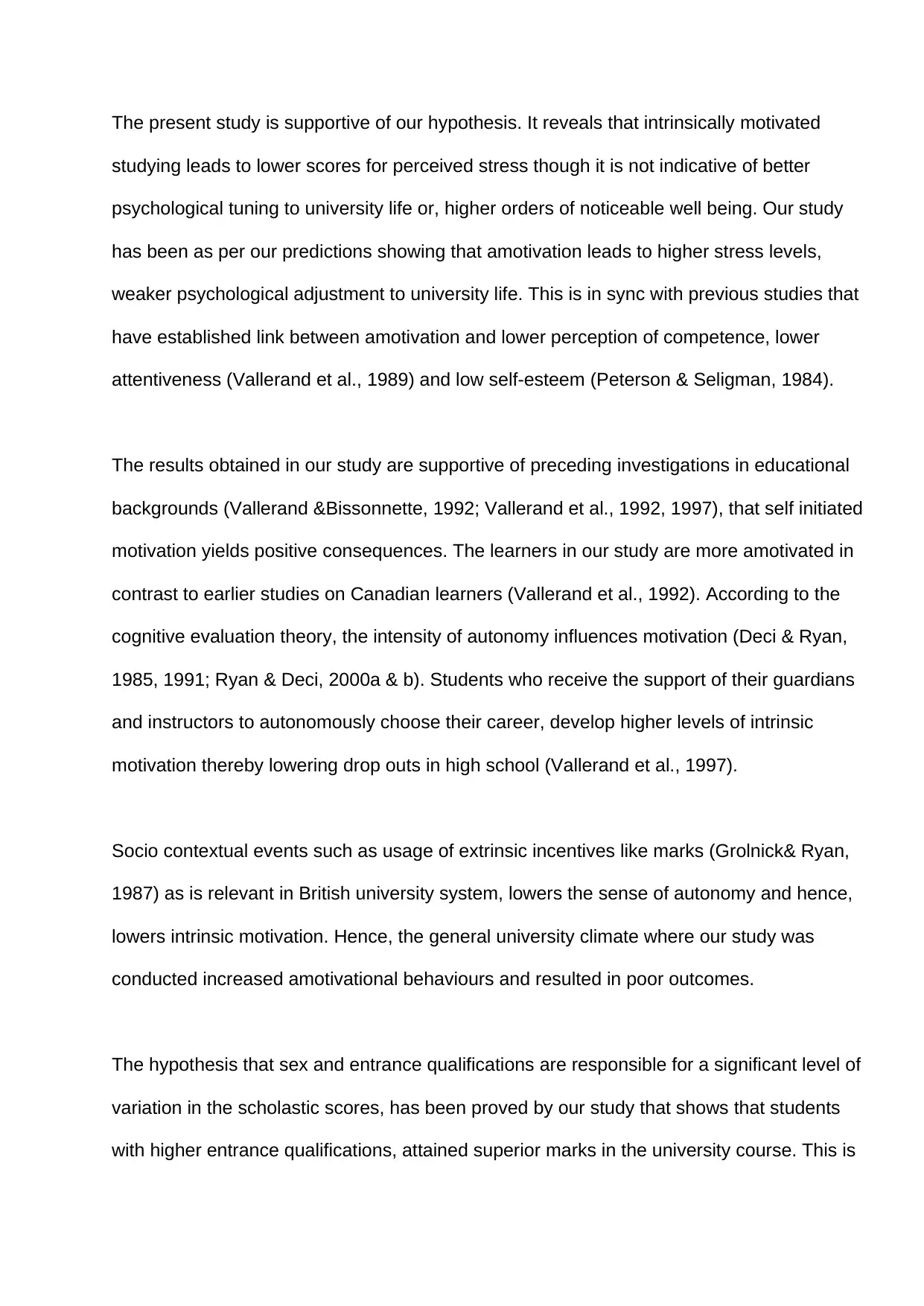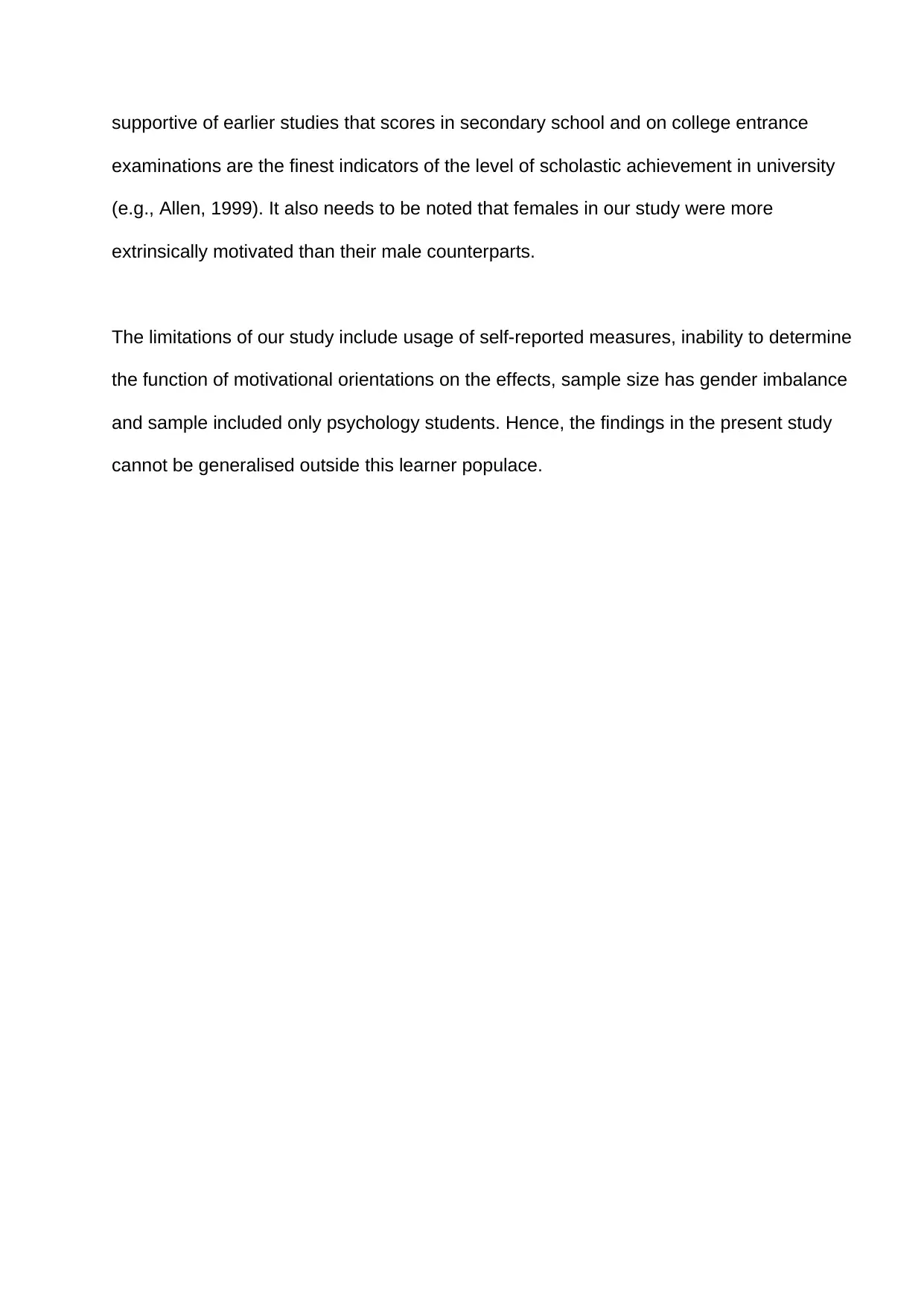The Impact of Motivation on Academic Performance: A Psychology Study
VerifiedAdded on 2019/09/18
|2
|445
|324
Report
AI Summary
This report presents a psychology study investigating the relationships between motivation, stress, and academic performance in university students. The study examined the impact of intrinsic and extrinsic motivation on student outcomes, finding that intrinsic motivation correlates with lower perceived stress levels. The research also explored the effects of amotivation, which was linked to higher stress and poorer psychological adjustment. Furthermore, the study considered the influence of gender and entrance qualifications on academic achievement, revealing that students with higher qualifications and females exhibited different motivational patterns. The report highlights the limitations of the study, including the use of self-reported measures, sample size, and the specific student population, emphasizing the need for caution in generalizing the findings. The research contributes to the understanding of motivational factors in academic settings and provides valuable insights for students and educators.
1 out of 2








![[object Object]](/_next/static/media/star-bottom.7253800d.svg)